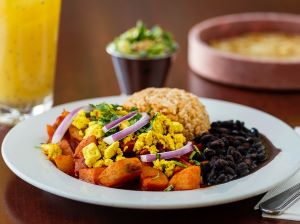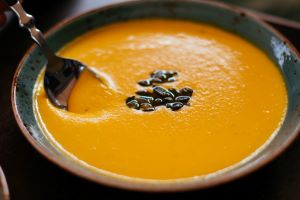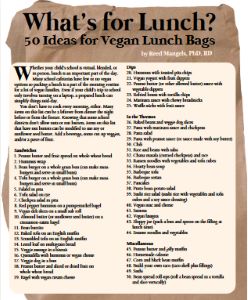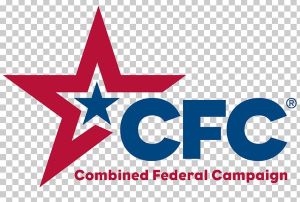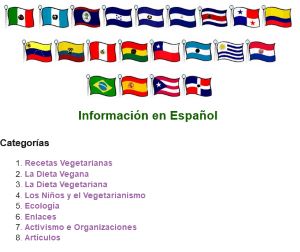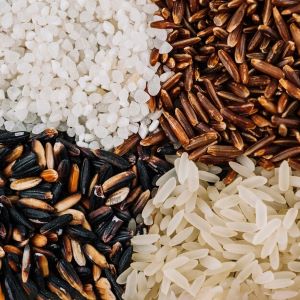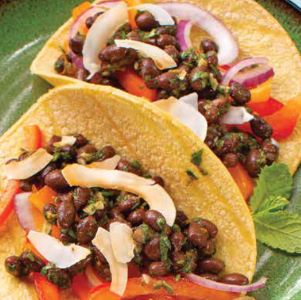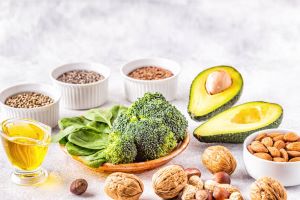Posted on
October 24, 2024 by
The VRG Blog Editor

By Jeanne Yacoubou, MS
In December 2023, The VRG read an article on Bored Cow’s milk products titled “Not so precise fermentation: Lab finds 92 unknown compounds in synthetic biology milk.”
The article states that the substances are not naturally present in dairy milk, which is what Bored Cow intends to replicate in its “…milk alternative made with milk protein from fermentation instead of cows.” Since the whey is “identical” to the whey in cow’s milk, according to their website, Bored Cow states on its FAQ page (scroll down to the second question in their second FAQ section titled Ingredients & Allergens) that their milk “is NOT dairy-free.”
Here’s the Q&A in its entirety:
Q: Can I drink Bored Cow if I have a dairy allergy?
A: Unfortunately, if you’re allergic to dairy (aka milk protein) you will not be able to drink animal-free dairy milk. The fermentation-derived milk protein we use in Bored Cow is identical to the milk protein found in cow’s milk. While Bored Cow is animal-free…, it is NOT dairy free.
Incidentally, while we were on the Bored Cow’s website, we noticed this Q&A (fourth question under the FAQ heading General) written especially to vegans:
Q: Is Bored Cow really vegan-friendly?
A: Because Bored Cow is made completely without animals, we believe it is vegan-friendly, and so do many of our vegan partners and friends. That said, “dairy without cows” is a brand new idea that the world is still wrapping its head around.
Many vegans believe these products should be labeled vegan, because they are 100% animal free, and helping the world transition away from animal-based foods.
Other vegans don’t believe these products should be labeled vegan, because they are replicating animal-based foods (to be clear — without animals).
Some vegans simply haven’t made up their minds yet, and that’s okay. Out of respect for the vegan community as a whole, we don’t currently use the term “vegan” to describe Bored Cow.
That’s why we call it “vegan-friendly” or “animal-free” instead. It signals that the product was made without animals, and that it contains dairy-identical ingredients.
Unknown substances in Bored Cow synbio drinks
The VRG noticed a striking claim in the article about the 92 unknown substances voiced by the scientist who analyzed Bored Cow’s dairy alternatives. According to Dr. John Fagan of the Health Research Institute, “The amino acid composition of the protein that’s present in the Bored Cow milk is strikingly different from the amino acid composition of real milk.” In other words, it appears that the genetically engineered yeast did not precisely make bovine whey despite having the bovine genetic material coding for it.
Dr. Fagan continues: “Here we have an example of 92 unpredicted compounds being produced, and only a trace of the whey protein that you really want.” According to Dr. Fagan, the unidentified substances “could be nutrients or waste products generated during the fermentation process…they’re completely novel to our food…”
Furthermore, Dr. Fagan states that fragments of the yeast’s genetic material – which contains a bovine segment – likely remain in the Bored Cow beverage. He is awaiting the development of a testing method that will prove the presence of genetically engineered yeast DNA in Bored Cow products.
Bioengineered foods in the United States
As The VRG previously reported, in the United States, as of January 2022, all foods and beverages that meet the definition of bioengineered must carry a label disclosing that fact according to the National Bioengineered Food Disclosure Standard. At this time, Bored Cow products are not required to be labeled.
It is important to note that, according to the Agricultural Marketing Service of the U.S. Department of Agriculture:
- “A bioengineered food disclosure is a marketing label, and does not convey any information about the health, safety, or environmental attributes of bioengineered food as compared to non-bioengineered counterparts.
- Food produced by very small food manufacturers, and food served in restaurants, food trucks, trains, airplanes, delicatessens and in similar establishments will not be required to bear bioengineered food labels, even if the product has bioengineered ingredients.
The VRG contacts Bored Cow about Its Products
We wanted to know Bored Cow’s opinion of Dr. Fagan’s work so we sent an inquiry through their website contact form. Here’s the exchange:
Q: I saw an article about your products stating there were 92 unknown compounds + fungicide in it. Do you agree with this? Is your milk safe to drink?
A: All of the ingredients we use in Bored Cow are FDA-approved (including our non-animal whey protein)! Further, our plant-based ingredients are similar to the ones you’d find in your other favorite plant milks; we are not sure if he wrote an article about those, too, or not…Everyone is entitled to their opinion, including the author of this article, however we would not be able to sell our milk if it was not safe to drink. This is where the FDA comes in. We list all of our ingredients proudly on our cartons, and website.”
The VRG also asked Bored Cow by email in separate exchanges:
Q: Are any natural flavors in your milk derived from animals (such as cow’s whey or casein)?
A: Bored Cow does not contain casein, and it is lactose free as well. However, it does contain real whey protein made by microflora instead of cows. That’s the “animal-free dairy” in animal-free dairy milk…Because it contains non-animal whey protein, Bored Cow is NOT suitable for those with a milk protein allergy. [VRG Note: All capitals in word by Bored Cow]
Q: Are there any animal-derived natural flavors (not just dairy-derived) in Bored Cow?
A: No animals were involved in the making of Bored Cow, and they never will be. Our product is completely vegan-friendly.
The VRG contacts Dr. Fagan about Bored Cow
Wanting to know more about the 92 unknown compounds identified by Dr. Fagan of the Health Research Institute (HRI), we prepared a series of questions. Here they are with his responses:
Q: How pure are the samples? How many samples did you run?
A: We made two purchases from the Bored Cow website about four months apart. The analysis to detect the 92 unnamed compounds that have never been assessed for safety, was done in triplicate. The analysis of amino acid composition was done independently by two well-respected and fully accredited food analysis labs. These analyses concluded that the amino acid composition of the synbio product was very different from that of normal, natural milk. We also compared the amino acid composition to that of the two most abundant milk whey proteins. Again, the amino acid composition of the samples was very different from that of the whey proteins. We conclude that most of the proteins that are being added to the Bored Cow milk are not whey proteins, but are proteins from the yeast or fungus cells that were genetically engineered with milk protein genes. The intention was to produce those milk proteins, but what happened in actuality was that the yeast/fungus cells produced mostly yeast/fungus proteins and maybe a little bit of milk protein. We would have to do additional research to actually quantify the amount of yeast/fungus protein present, but our current analysis indicates that yeast/fungal proteins predominate.
Q: Which analytical methods/instruments did you use? What are their sensitivities?
A: We did two basic sets of analysis.
- Analysis of the “small” molecules present in the synbio product
For this analysis, we used high performance liquid chromatography linked to a quadrupole time-of-flight mass spectrometer (HPLC-mass spec). This methodology is capable of detecting as little as 10 nanograms per gram of an analyte.
The “small molecules” in milk are the diverse range of nutrients that are known to be present in milk. These include
- Several vitamins
- Many lipids
- Fatty acid-carnitines which facilitate burning of fatty acids for energy
- Many important intermediary metabolites—carbohydrates and lipids
- Compounds like glycerol-phosphocholine and hippuric acid that have both biosynthetic and regulatory roles
- Other regulatory molecules
- Flavonoids, coumarins, terpenoids, and other compounds with powerful anti-oxidant and anti-inflammatory properties.
We identified and quantified over 60 nutrient compounds in biodynamic, organic and conventional milk. Except for two or three compounds, these nutrient molecules were absent from the synbio product, and even those few that were present were in much smaller amounts than were found in real milk. In contrast, the small molecules present in the synbio product were, by and large, not nutrients. Only about eight compounds were able to be identified. There were, however, over 90 other compounds present in the synbio product. Using special software to compare the mass spec data from the synbio product to the mass spec data for tens of thousands of compounds in mass spec data libraries, we were unable to identify those 90+ compounds.
- Analysis of the Proteins in the Synbio Product
We outsourced this analysis to a well-respected food analytical laboratory that used methods that were accredited to the ISO17025 standard, the international standard for analytical laboratories.
The basic question we were trying to answer with this set of analyses was whether the proteins in the synbio product were similar to the proteins in natural milk. This is an important question because the stated intent of the developers of this product was to give consumers a product that had the nutritional composition of natural milk. They did this by genetically engineering into the fungus Trichoderma reesei the gene for one of the most abundant bovine milk proteins, beta-lactoglobulin (BLG for short). One of the most definitive characteristics of a protein is its amino acid composition. This is also the most important nutritional characteristic of a protein, because the reason we eat proteins is that they give us amino acids, which are the building blocks for our own proteins. What we found was that the amino acid composition of the synbio product was vastly different from the amino acid composition of natural cow’s milk and also vastly different from the amino acid composition of the BLG protein itself. Since the developers of the synbio product had genetically engineered T. reesei fungus to produce BLG, it would be expected that the composition of the proteins present in the synbio product would closely mirror that of the BLG protein, but that was not the case. It deviated very significantly from that amino acid composition of the BLG protein. Mathematical modeling experiments indicated that the amount of bovine BGL present in the synbio product was less than 10% of the total protein present in the milk. What this means is that, although they genetically engineered the fungus with the gene for the bovine BLG protein, the vast majority of the protein that the fungus produced was fungal protein, not genetically engineered bovine BLG.
Q: Are you CLIA-certified? If not, is your lab certified in any way? By whom?
A: Our laboratory is accredited to the ISO17025 standard, which is the international standard for analytical laboratories. HRI is also approved under the FDA’s CLIA program as a high-complexity clinical laboratory.
Q: What quality control protocols do you follow?
A: There are huge requirements under both CLIA and ISO17025 [that we follow.]
Q: How small (or large) are the amounts of the 92 substances you found? A statement relative to the amounts of the major components of dairy milk would be helpful.
A: The analytical approach that we used for the 92 compounds was what is called “untargeted.” That means that we didn’t ask, “Is compound X present in the sample?” We asked a much larger question. We asked, “What compounds are present in the sample?” To ask the targeted question, you need to have bone fide standards for each compound. Based on those standards, you can determine very accurately the actual nanogram or microgram amount of a given compound that is present in the sample. In the untargeted analysis, you can’t use standards because you don’t know what compounds are going to be present in the sample. Therefore, we get rough approximations of the amounts present. We can say, for example, that the sample contains “a large amount of compound x, and a tiny amount of compound y.” But, we cannot say exactly how much of these are present. But there is a general proportionality between intensity of the mass spec signal that is generated for a molecule and the amount of that compound present in the sample. Based on this, we can say that the more abundant unnamed synbio compounds are roughly as abundant as the nutrients in real cow’s milk. This is the best we can do until we have identified these 92 compounds. When we have identities, we can buy or make standards and quantify the amounts present in the synbio product very precisely.
Q: Have you tested similar “animal-free” milks? If so, did you find the same substances? If not, are you planning to?
A: Please consider avoiding using the terms animal-free milk or synbio milk. Those reinforce the idea that these products are milk. “Synbio product” or “synbio drink” are better terms to use. This is the first set of products that we have analyzed. We will go on to analyze others in the coming months, and also other synbio products, including the synbio meats which are not accessible except under very controlled conditions at a few restaurants.
Q: What was your original rationale for doing the analysis? Did you have the intention of looking for/finding unknown substances such as GMO-related compounds?
A: We approached this project with an open mind, and were actually very surprised by the results. We expected to see a much richer range of nutrients in the synbio drink and we didn’t expect to find so many totally unknown compounds that had never been tested for safety. Also, we were very surprised that the amino acid analysis showed that the protein in the synbio drink was so different from beta lactoglobulin.
Q: Who funded this research?
A: We have received funding from the Organic and Natural Health Association and from the Non-GMO Project.
There is ongoing advocacy by the dairy industry not to call animal-free and plant-based milks “milk.” So it will be interesting how the terminology proceeds. Dr. Fagan will be publishing his information in a peer reviewed journal. Likely others will try to duplicate his work and check results and what they mean.
The contents of this posting, our website and our other publications, including Vegan Journal, are not intended to provide personal medical advice. Medical advice should be obtained from a qualified health professional. We often depend on product and ingredient information from company statements. It is impossible to be 100% sure about a statement, info can change, people have different views, and mistakes can be made. Please use your best judgment about whether a product is suitable for you. To be sure, do further research or confirmation on your own.
